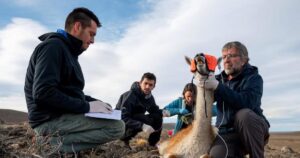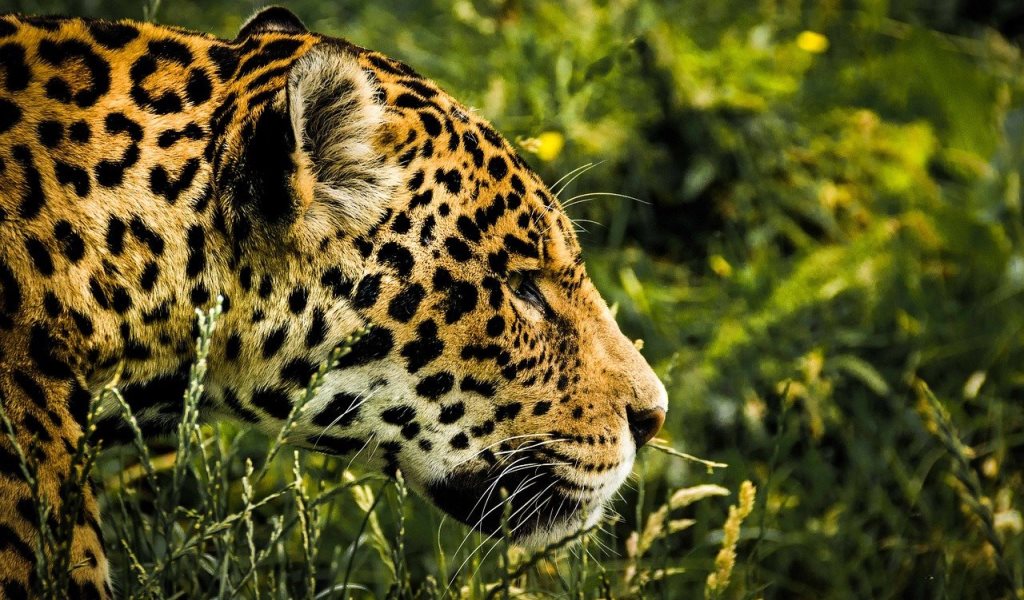The most prominent scientific magazine in the world, Nature, has published an article in which Rewilding Argentina describes the activities, importance, and future of rewilding during the UN Decade on Ecosystem Restoration.

The Rewilding Argentina team in Patagonia Park captures and places a GPS collar to a wild guanaco in order to obtain ecological information to help recover the seasonal migrations of this large herbivore native to Patagonia. Photo: Franco Bucci / Rewilding Argentina Foundation.
Approximately 97% of the planet’s land surface is degraded by human activities. Faced with this bleak panorama, the United Nations Organization has launched the Decade for Ecosystem Restoration 2021-2030. The call is urgent: nature faces its last great battle and cannot lose it.
The process is unique and pursues two main objectives: conserving ecosystems’ biodiversity and ecological functions and converting these places into engines of economic development while preserving and restoring the natural world.
The effort required to achieve these transformations is formidable, and rewilding is seen as one of the fundamental tools to reverse the rampant extinction crisis ravaging the planet.
In recent years, Argentina has become a leader in ecosystem restoration thanks to the work we have carried out with a clear strategy:
- Acquire large tracts of land and convert them into protected areas under provincial and national jurisdiction;
- Restore them through the reintroduction of key species, such as the jaguar, the giant otter, the marsh deer, and the huemul; and
- Provide neighboring communities with the tools to implement an economy respectful of natural ecosystems based on nature tourism fueled by wildlife observation.
Rewilding Argentina is a partner of Tompkins Conservation, which played an instrumental role in donating land to create Ibera National Park and collaborated to develop the rewilding program.
Photo of jaguar (one of the residents of the Ibera National Park) is by Chris Martin from Pixabay.

